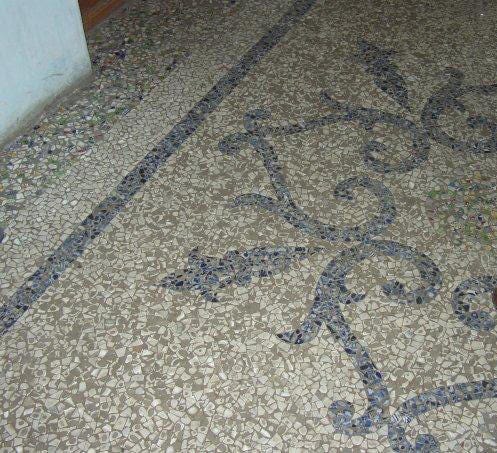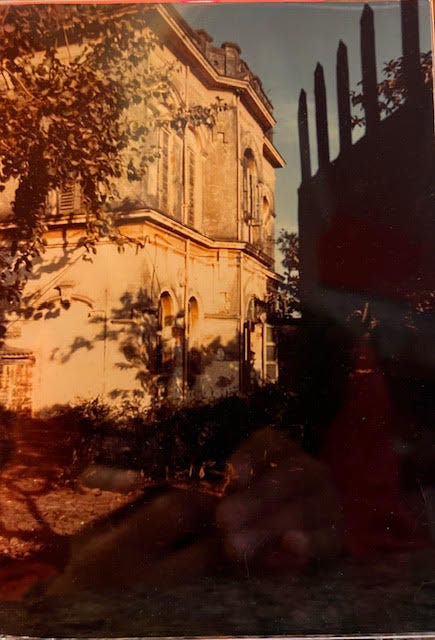Up in Smoke
“Oh, return to zero, the master said. Use what’s lying around the house. Make it simple and sad.” (~ Stephen Dunn, “Visiting the Master”)
The noonday heat of an Indian summer is an enveloping, sodden, heavy with moisture cloak. It doesn’t scald you; it brings you to your knees, then leaves you in a puddle.
I’m showered, talcumed, hair combed and ready (yes, I did have thick hair then) to skip down for Sunday lunch with my parents, one of the few meals that we had together each week. White rice, steaming dal, vegetable fritters for starters, then fish, sometimes chingri, shrimp vindaloo.
But first, pull the mora, the basket-woven, leather-covered seat, over to the radiogram. A what? In British English, a radiogram is a console with a radio on one side and a record-player and turntable on the other. You loaded the record-player with a stack of shellac-resin vinyls, usually 78 rpms, often 45s and most rarely 33 & 1/3 rpms or “long plays.” The latter was the most expensive. The console had a front-opening lid on hinges that served as my elbow rest and doubled as a desk, whether it was designed to be or not. I tune into Radio Ceylon, the noon-hour request program in English. It played pop Top 40 hits (from the UK and US) on request, and we tracked the request list to find out who was requesting for whom, a laborious practice, to observe the mating behavior of Anglicized South Asians in mid-century India.
My memory of the radiogram (with me on the left corner) is as dimly lit as in this photograph.
(Photo credit: Courtesy author)
Head resting on the console top, radio turned on, my sister, four years older, did her high school math homework, to the constant frustration of my mother. My sister was actually good at math so perhaps the radio helped her.
I taught my mother the armature of cricket and how to keep score; how to record the number of overs, the number of wickets, runs, boundaries. It was a simpler time and matches ran for five days so keeping track of number of balls and overs mattered little; it was all about runs and wickets. I’d race home from school to plunge myself into this pool of imagination through the airwaves. It was here that I heard “Vizzy”, the garrulous, eccentric and bad commentator, Maharajkumar of Vizianagram, uncharacteristically scream into my ear as an aging off-spinner (he was 35) Jasubhai Motibhai (Jasu) Patel bowled out the last Australian batsman in the first inning in December at Green Park, Kanpur in 1959, winning the first-ever test against an Australian eleven. Patel’s feat was beyond thrilling. He had played in only five tests in the past five years and yet that winter morning he bowled 35.5 overs and claimed 9 Aussie batsmen—some of the most powerful of their time-- for a run total of 69.
On a late-summer afternoon, resting my head on top of the Philips radiogram, I almost literally held my breath as Milkha Singh, the “Flying Sikh”, the first Indian athlete to reach an Olympics final, lost his place in medaling at Rome in the 1960 Olympics in 400 meters, losing by zero point one second in a photo finish to Michael Spence of South Africa. I remember I cried.
In the autumn of 1962, a bald-headed, rotund Russian, in an ill-fitting suit, challenged a dapper, handsome American in an exactingly fitted suit, bringing the world to the very edge of the precipice of nuclear war. I heard about it at the radiogram. I was twelve and the reality of the confrontation was beyond my comprehension except I, as a post-World War II male child, was entranced by the exploits or experiences of my parents’ generation in what I considered a great adventure. So, eyes shining, I excitedly, barely able to contain my excitement, told my father as he walked in from a meeting in town that evening. I saw the bewilderment, the flash of fear, then the resignation, as he swallowed the news. He didn’t say anything. He pulled me into an embrace.
Over fifty years later, I’m on that second floor again, having climbed the dangerously decrepit stairs in this empty, abandoned shell of decaying brick and crumbling memories. The radiogram was long gone. The floor it was on was still there. As a small child I was closer to the floor than any towering adult and it was a playground of sorts. The chimera turned the faux Mediterranean pattern of mosaics into a vast canvas of make-belief.
(Photo credit: Courtesy author)
The floor was the central spot on the second floor with rooms radiating off it. It was floor I sat on with my older sister, in the middle of the night, woken by the angry exchanges of my parents downstairs, loud and disconcerting, ricocheting in the night. I’m sure I walked on it toward my parent’s room in my sleepwalking phase. I sat near the armchair with my mother on Friday nights as Bengali radio plays were broadcast. What a range of genres and I was beguiled ---historic, myths, mysteries, wrongly accused detective thrillers, love stories, comedies, reenactments of Bengali literature’s classics.
The house in its original form doesn’t exist. The floor certainly not. The view from the second-floor windows is different, on all sides. The pond in front of the house is filled in and cemented; the main road broadened and thousands more rush hither and yon on public transportation and an array of private vehicles, two-wheelers and otherwise. I’m pretty sure that everyone who lived in the house is dead. And who will remember or care about this in a quarter century? Probably no one.
(Photographer: Lisa Samson. Courtesy author)
I write to get better and better at constructing sentences. As simple as that. I’m lucky to have access to almost 600,000 words (per the unabridged Oxford University Press Dictionary) and have the unique ability to communicate with written language that my species is able to exceptionally in the known history of the universe. Oh, what joy in trying.
“Memories are killing. So you must not think of certain things, of those that are dear to you, or rather you must think of them, for if you don’t there is the danger of finding them, in your mind, little by little.” (~ Samuel Beckett)







This is beautiful
Beautifully written. From the first lines, I was transported.